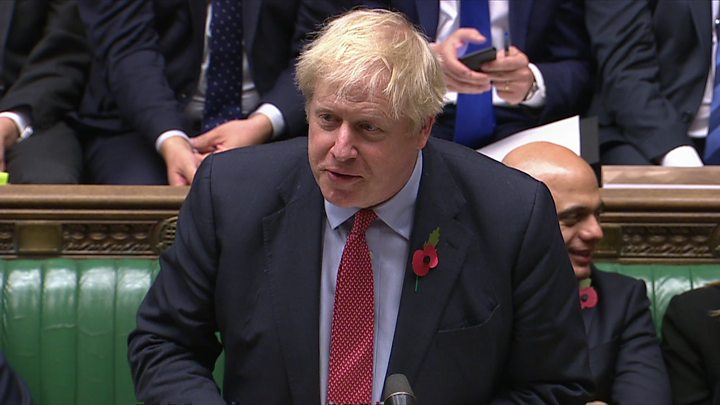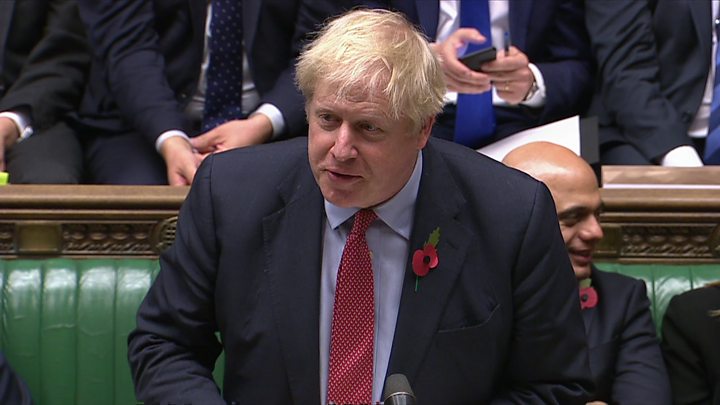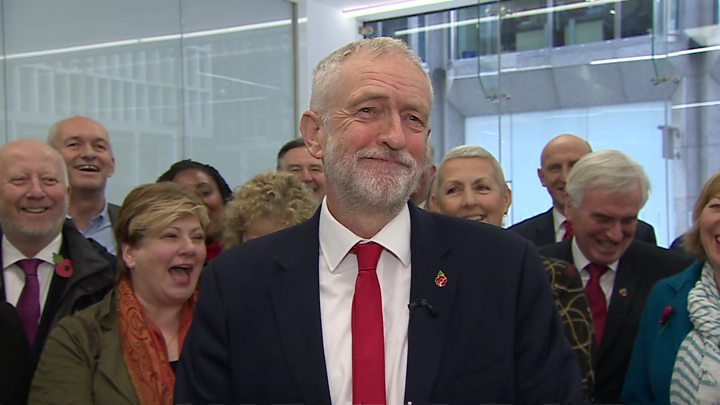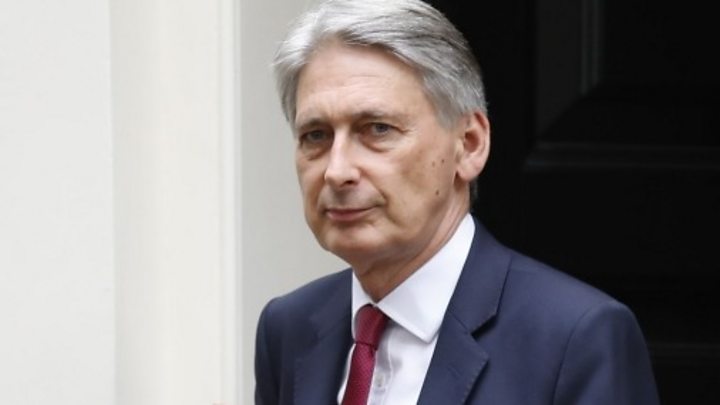December election plan clears first hurdle
MPs back a second reading of the PM’s bill without a vote, but debate on it continues. …


Media playback is unsupported on your device
Boris Johnson’s December 12 election plan has cleared its first Commons hurdle as MPs backed it without a vote.
They will continue to debate and vote later on amendments, including a Labour proposal to change the date to 9 December.
The prime minister can only hold an election with the support of MPs – who have blocked it three times.
Efforts by opposition MPs to lower the voting age to 16 and allow EU nationals to take part have failed.
Proposed changes to the PM’s early election bill to extend voting rights were not selected for debate by the Deputy Speaker despite enjoying cross-party support.
It removes one major potential obstacle to a pre-Christmas poll as No 10 had said it would abandon the legislation needed for it if the franchise was altered at such a late stage.
One proposed change that will be considered is a call by Labour – backed by the other opposition parties – to hold the poll three days earlier on 9 December.
This, they argue, would ensure that university students are more likely to be able to take part because it would still be in term time.
MPs will vote on this amendment and others after 19:00 GMT, before being asked to give their final approval to a 12 December poll.
Labour has, against the wishes of many of its MPs, shifted to supporting a December election and with that, it means we are on for the first December general election in decades.
The prime minister hopes this will give him a victory at the polls that would allow him rapidly to get his Brexit deal through Parliament and the UK out of the EU.
The Labour leader hopes for a souped-up version of his move forward at the 2017 election that would mean, contrary to the view of many of his own MPs, his project can continue and build.
The Lib Dems and SNP hope for a chance to stop Brexit happening, and expand their own political positions at a junction for the country.
But none of the parties can be remotely sure of what will happen next.
What has Labour said about an election?

Media playback is unsupported on your device
Mr Corbyn was cheered by members of his top team, as he made his announcement at Labour’s campaign headquarters in central London.
He said: “I have consistently said that we are ready for an election and our support is subject to a no-deal Brexit being off the table.
“We have now heard from the EU that the extension of Article 50 to 31 January has been confirmed… We will now launch the most ambitious and radical campaign for real change our country has ever seen.”
However, not all Labour MPs are on board, with Ben Bradshaw saying it was a “bad mistake” and calling instead for another referendum on Brexit.
His fellow backbench MP, Barry Sheerman, tweeted that it was “sheer madness” to hold a December election “on Boris Johnson’s agenda”.
What is the government’s plan?
Addressing MPs, Mr Johnson claimed an early election was the inevitable consequence of Parliament’s decision to thwart his Brexit bill.
He said only a “refreshed and revitalised” Parliament could implement the 2016 referendum result and opposition to an election had “begun to crack” in the past few days.
It is the fourth time that Mr Johnson has tried to get Parliament’s approval for an election.
On previous occasions, he sought to do it by way of the Fixed-term Parliament Act, which requires the support of two-thirds of all 650 MPs to go through.
The legislation the PM is now proposing requires a lower threshold for approval – a majority of one – but can be amended by those MPs wanting to add their own conditions to an election – such as a proposal to lower the voting age.
The PM does not have a majority in Parliament after his decision in September to remove the party whip from more than 20 of his MPs who voted to block a no-deal Brexit.
But Downing Street has suggested some of the rebels could now get the whip back.
Where do the other parties stand?
The SNP’s Westminster leader Ian Blackford said a strong performance by his party would bring Scottish independence a “step closer”.
Both his party and the Lib Dems want to fight the election on a platform of stopping Brexit entirely.
Lib Dem leader Jo Swinson said an election was the only way to do this, given there was not enough support in Parliament for another referendum.

Media playback is unsupported on your device
But one of the party’s latest recruits, Heidi Allen, has criticised the position and announced she will not stand in the next election.
Both The Independent Group for Change, which has five MPs, and Plaid Cymru, which has four MPs, have said they will vote against an election and instead continue to support a so-called “People’s Vote” – or further referendum on Brexit.
Some former Conservatives are also against an election too.
Former Chancellor Philip Hammond – who was expelled from the Conservative parliamentary Party after voting against a no-deal Brexit – said the idea of using “precious time” to hold an election, rather than passing the government’s Brexit bill, “frankly appals me”.
The Democratic Unionist Party, which has 10 MPs, says it does not fear an election but would not vote for anything that may take Parliament closer to approving the PM’s Brexit deal.
When will we know if there will be an election?
The government is aiming to complete all the Commons stages of its early election bill by the end of the day – a process that normally takes several days.
A vote on the second reading of the bill – the first Commons hurdle to be overcome – is expected shortly before 18:00 GMT.
The Commons has already backed the programme motion – setting the timetable for the legislation – after MPs changed it to allow backbenchers to amend the bill during its passage.
It will be up to the Deputy Speaker Lindsay Hoyle – who oversees the committee stage of bills – to decide which, if any, amendments will be debated and voted on.
MPs will give their final approval to the bill, and any amendments passed, at the third reading stage, This is expected some time around 20:00 GMT.
If MPs back the bill, then there is almost certain to be a pre-Christmas election, although the legislation will still have to clear the House of Lords.




